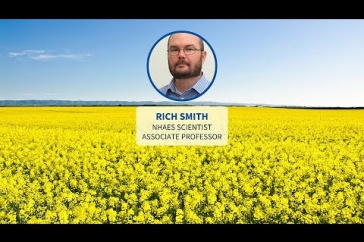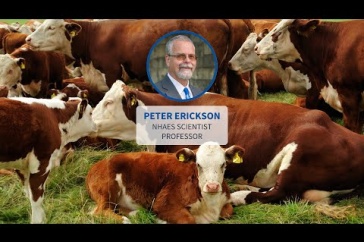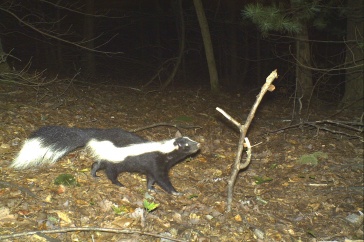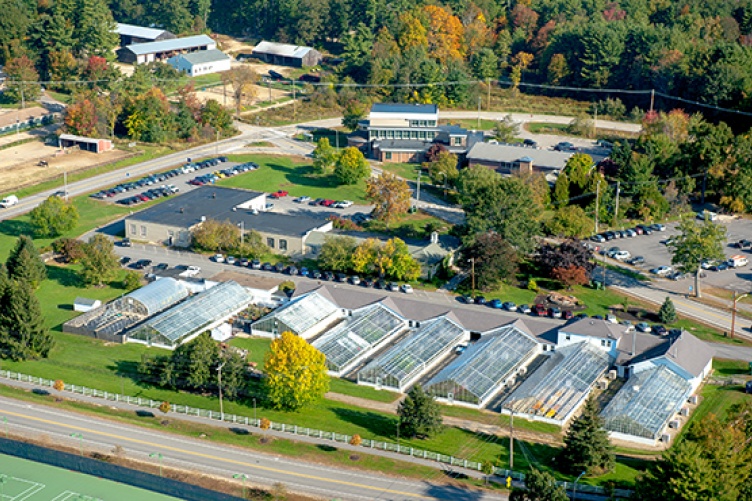
For the second year, the Macfarlane Research Greenhouses at the University of New Hampshire have received the top grade for sustainability by an independent international sustainability certification group. The facility, which is part of the NH Agricultural Experiment Station at the UNH College of Life Sciences and Agriculture, is the only research greenhouse operation in the world with this sustainability certification.
The MPS Group of the Netherlands facilitates a greenhouse sustainability certification program that assesses energy, water, and fertilizer use; crop protection methods; and waste management in greenhouses around the globe. MPS Group operates in more than 55 countries and works with about 4,000 growers.
The Macfarlane Research Greenhouses maintained a grade A certification for the second year since UNH began participating in the program in October 2012. With about 20,000 square feet of greenhouse space, the facility has about 20 research projects ongoing at any given time and is a key component of the experiment station’s extensive research program.
In its review of the Macfarlane Research Greenhouses, MPS commended the UNH facility for its new fertilizer inventory system, crop protection, and waste management. “It is good to see that the MPS ABC certification is working as an instrument for UNH Greenhouses. In comparison with the initial audit, I have seen several improvements in record keeping and also in relation to thoughts on how to further improve the total score for MPS ABC. The involved staff led by David Goudreault are professionals and dedicated to the task,” said MPS-ECAS auditor Arthij van der Veer, who toured the greenhouses recently with greenhouse manager David Goudreault.
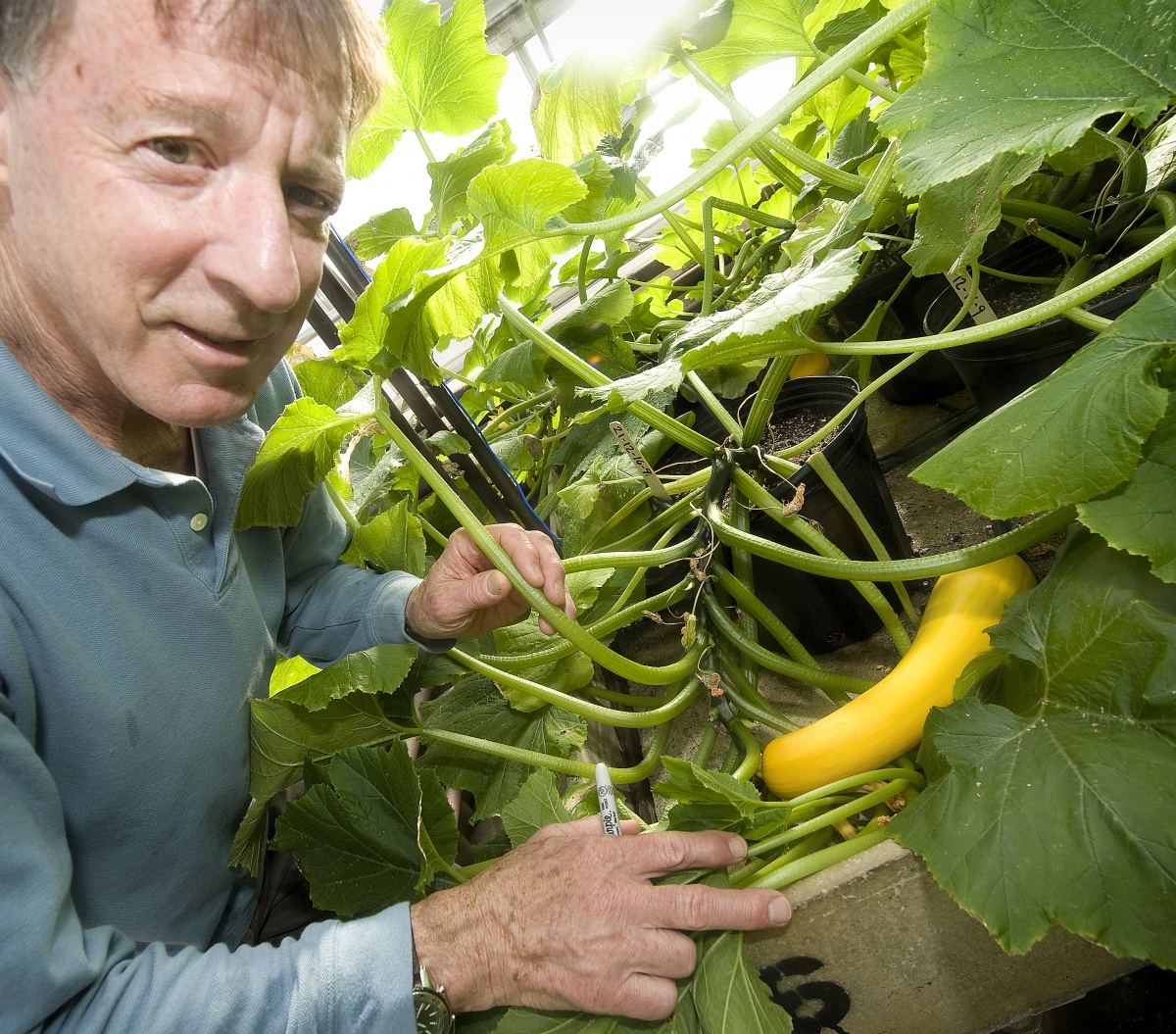
During the first year of participating in the certification program, Goudreault said greenhouse staff developed efficient methods for logging and reporting inputs associated with fertilizer usage, crop protection, water usage, energy, and waste management. In the second year, management evaluated changes in reported inputs over time and began to set benchmarks for improvement.
“Participating in MPS has increased our awareness of the inputs associated with each research project. For example, Dr. Brent Loy’s cucurbit breeding program requires high water and fertility inputs. We recently installed moisture sensors and a water flow meter for a hybrid melon growing program. Sensor readings are integrated with our irrigation controller to intermittently pulse water at short intervals to maintain a specific moisture level and reduce leaching from the pot to a bare minimum,” Goudreault said.
“We have already found that we can maintain excellent plant quality with a significantly reduced fertility rate. Although water use evaluations are not complete, it seems clear that it will decrease significantly. We’re planning to install a similar watering system in the larger cucurbit breeding crop in the spring,” he said.
Jon Wraith, dean of UNH’s College of Life Sciences and Agriculture and director of the New Hampshire Agricultural Experiment Station (NHAES), initiated UNH’s involvement with the MPS certification program after learning about it from alumnus Doug Cole, who owns DS Cole Growers in Loudon, the first MPS-certified commercial greenhouse in North America.
-
Written By:
Lori Tyler Gula, PhD | NH Agricultural Experiment Station | lori.gula@unh.edu | 603-862-1452

















































